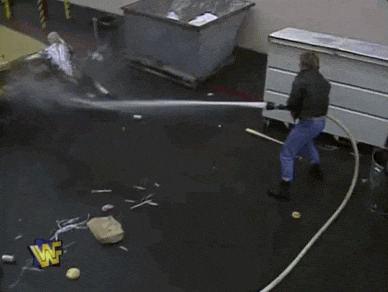- Lazy Leverage
- Posts
- The Key to Successful Remote Onboarding
The Key to Successful Remote Onboarding
Imagine you're standing in a vast, dimly lit room.
It's filled with people, conversations, and activity.
You've been here for years.
(Hint: This room is your company, and I’m drawing an analogy)
You know where everything is, who everyone is, and how it all fits together.

Now imagine a new person joins your team.
But instead of stepping into the room, they're peering through a tiny straw from outside.
That's their entire view of your organization.
It's a frustratingly limited, disorienting experience.
They can't simply look around.
To shift their gaze even slightly, they need to schedule a meeting.
"Can we hop on a quick call? I’m not sure about something."
Every decision requires coordination & every piece of information is a deliberate effort to obtain.
They hear people talking but can't make out the words.
They see fragments of activity but can't understand the context.
It's like trying to watch a movie through a keyhole, catching glimpses of scenes but never grasping the full plot.
When they do manage to schedule a "looking around" meeting, it's overwhelming.
Suddenly, they're drinking from a fire hose of information, trying to absorb in minutes what others have learned over months or years.
And as soon as the call ends, they're back to the straw, left to piece together what they've seen into some semblance of understanding.
They're constantly playing catch-up, always feeling a step behind.
They can't lean over to a colleague and ask a quick question.
Even simple things become complex. Finding a document might mean navigating a labyrinth of unfamiliar folders and drives. Understanding who's responsible for what could require piecing together information from multiple conversations and emails.
It's like trying to assemble a jigsaw puzzle without the picture on the box, and with most of the pieces hidden from view.
And all of this happens while they're expected to perform their actual job duties.
This is the reality of onboarding remote workers, especially in global teams.
They don't have the benefit of “conversations by the water cooler”, observing body language in meetings, or absorbing the company culture through osmosis.
As leaders, we often forget this perspective.
We've been in the room so long, we assume everyone else can see what we see.
We toss tasks over the wall and wonder why they don't get done perfectly.
We get frustrated when new team members ask "obvious" questions or seem slow to grasp how things work.
But here's the thing: it's not obvious to them. Not at all. Every bit of understanding they gain is the result of deliberate, often exhausting effort.
So what can we do about it?
How do we help our new team members see the whole room?
Recognize the straw: First, acknowledge that the straw exists. Understand that your new hire isn't operating with the same context you have. They can't see the big picture because, quite literally, they can't see the big picture.
Widen the view: Gradually widen their perspective. Start with the basics: who's who, what's what, how things work. Document processes, create org charts, record video walkthroughs. Give them a map of the room before expecting them to navigate it.
Provide context, not just tasks: Don't just delegate tasks. Delegate context & end states. Explain why a task matters, how it fits into the bigger picture. Help them understand the room, not just their tiny corner of it.
Assign an onboarding buddy: Pair new hires with experienced team members who can be their guide. Someone who can answer the "stupid" questions, provide unofficial context, and help them understand the unwritten rules of your organization.
Be patient building context takes time: It's a gradual process of widening the straw, bit by bit, until they can see the whole room. Don't expect overnight miracles.
Use technology: Leverage tools that help bridge the gap. Video calls, virtual whiteboards, project management software – use technology to give them more ways to see and interact with the room.
Remember, every time you bring on a new remote team member, you're asking them to understand and operate in a complex environment they can barely see.
It's your job to widen their view, to help them see what you see.
It's not about handholding - it's about empowerment.
Because when they can see the whole room – its people, its processes, its purpose – that's when the magic happens.
That's when they can truly contribute.
So next time you're onboarding a remote team member, remember the straw.
And ask yourself: how can I help them see the whole room?
Speaking of which - we are hosting a free workshop this week for Sagan Passport members on setting up onboarding for global talent.
Rose (our host) is the one who proactively built this - she is a star, I can’t wait to learn from her.

Yallah Habibi,
Jon
Passage of the Week
"The educated man, particularly the educated leader, copes with the fact that life is not fair.
The problem for education is not to teach people how to deal with success but how to deal with failure. And the way to deal with failure is not to invent scapegoats or to lash out at your followers.
Moreover, a properly educated leader, especially when harassed and under pressure, will know from his study of history and the classics that circumstances very much like those he is encountering have occurred from time to time on this earth since the beginning of history.
He will avoid the self-indulgent error of seeing himself in a predicament so unprecedented, so unique, as to justify his making an exception to law, custom, or morality in favor of himself.
The making of such exceptions has been the theme of public life throughout much of our lifetimes.
For 20 years, we’ve been surrounded by gamesmen unable to cope with the wisdom of the ages.
They make exceptions to law and custom in favor of themselves because they chose to view ordinary dilemmas as unprecedented crises."
from Moral Leadership
By Vice Admiral James B. Stockdale, U. S. Navy (Retired)

